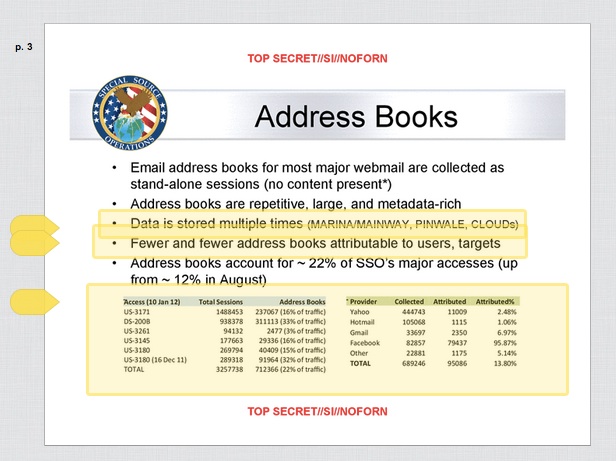Well, well. Are we surprised by this latest Snowden revelation (published by the Washington Post)?
Is the pope a Protestant?
Rather than targeting individual users, the NSA is gathering contact lists in large numbers that amount to a sizable fraction of the world’s e-mail and instant messaging accounts. Analysis of that data enables the agency to search for hidden connections and to map relationships within a much smaller universe of foreign intelligence targets.
During a single day last year, the NSA’s Special Source Operations branch collected 444,743 e-mail address books from Yahoo, 105,068 from Hotmail, 82,857 from Facebook, 33,697 from Gmail and 22,881 from unspecified other providers, according to an internal NSA PowerPoint presentation. Those figures, described as a typical daily intake in the document, correspond to a rate of more than 250 million a year.
Each day, the presentation said, the NSA collects contacts from an estimated 500,000 buddy lists on live-chat services as well as from the inbox displays of Web-based e-mail accounts.
The collection depends on secret arrangements with foreign telecommunications companies or allied intelligence services in control of facilities that direct traffic along the Internet’s main data routes.

